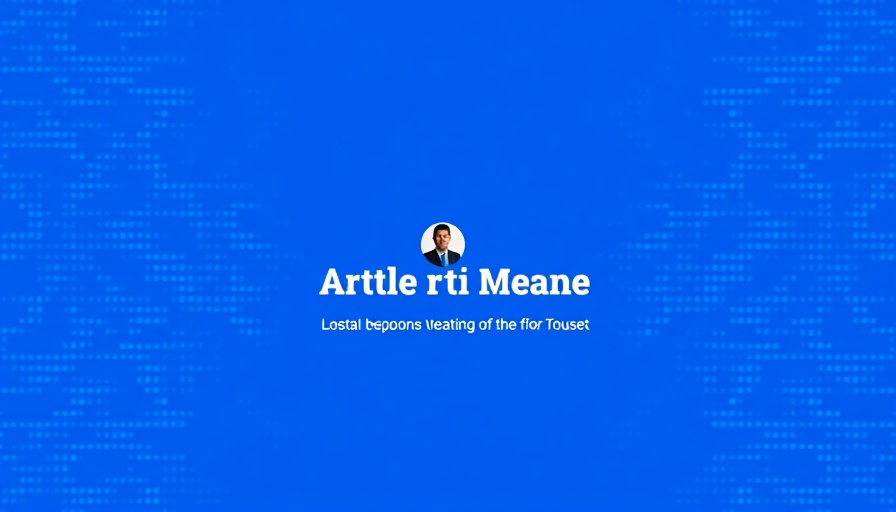
Understanding Human-Centered SEO in a Tech-Driven World
As advancements in artificial intelligence continue to evolve, the landscape of search engine optimization (SEO) is witnessing a significant shift. The critical focus now lies not only on the data-driven approach of machine learning but on a more holistic, human-centered perspective. This approach allows marketers to creatively address user needs, making them indispensable in a world where automation threatens traditional roles.
Why User Behavior Matters Now More Than Ever
In a field where rankings are dictated by algorithms, understanding user behavior becomes paramount. While many SEO practitioners rely heavily on third-party tools and standard practices tied to keyword optimization, the art of SEO lies in recognizing the human signals behind search engine algorithms. Google prioritizes user experience, meaning that those marketers who can connect the dots between human interaction and SEO metrics are better positioned for success. A Renaissance of sorts is occurring within SEO strategy, indicating that a human approach can yield better results than mere data analysis.
The Art of SEO: Notes from Successful Brands
One illustrative example comes from Zappos, renowned for its customer-centric return policy that dramatically grew its market share. Unlike many competitors who focused on pricing or immediate service efficiency, Zappos revolutionized the buying experience by addressing a human concern: the fear of being stuck with unwanted purchases. This strategy proved that success in SEO isn’t just about replicating what seems to work; it’s about innovating in ways that genuinely resonate with human users.
The Risks of Over-Reliance on Data
While tools and data are invaluable in guiding SEO strategies, they can create a limiting mindset. The key question surfaces: are marketers leading with their insights, or are they simply following automated suggestions? Those stuck in the cycle of optimizing for machines rather than for people risk redundancy. The SEO professional who can analyze search engine results pages (SERPs) and draw actionable insights from them stands out in this increasingly competitive landscape.
Strategies for Effective Human-Centered SEO
To transition to a more effective SEO practice, marketers should focus on strategies that prioritize genuine human needs. Encouraging creativity in content planning can significantly differentiate a brand in the crowded digital space. The modern SEO strategy must go beyond basic keyword analysis and adapt to the dynamic preferences of users, leading to more innovative content that reflects human values.
The Future: Integrating Tech with Humanity
The conversation around AI's influence on SEO underscores the urgency of adopting human-centered techniques. As technology becomes more integrated into our daily tasks, marketers who can balance data with intuition and empathy will likely thrive. With the looming presence of AI-driven systems that could automate various aspects of SEO, the ability to connect with users on a human level will become a defining characteristic of successful marketers in the future.
This is not just a shift in SEO; it is a fundamental change in how businesses must operate digitally. By prioritizing human needs in marketing strategies, companies can ensure they remain relevant and essential in an increasingly automated world.
 Add Row
Add Row  Add
Add 




Write A Comment